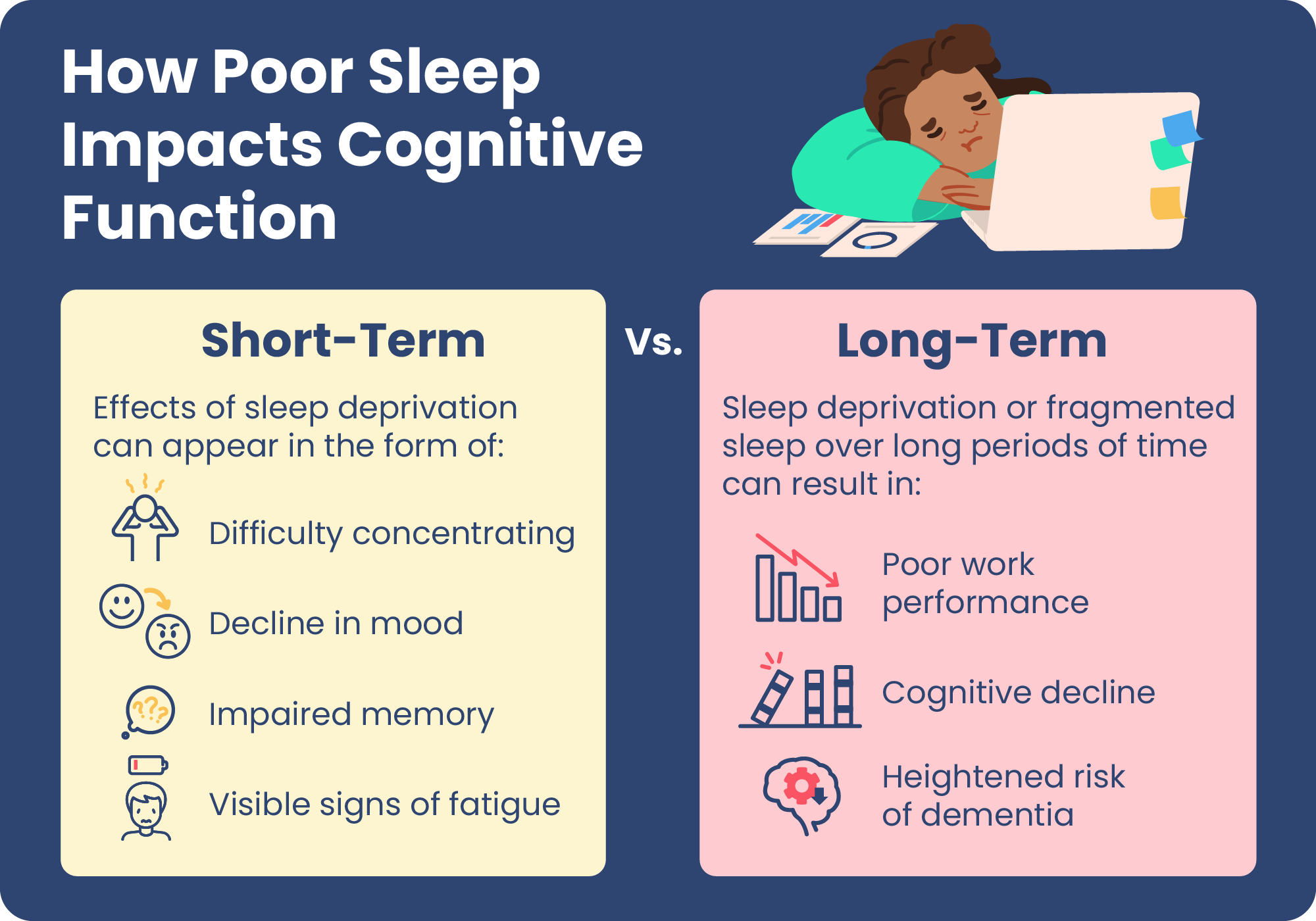Mental Health and Sleep
by Admin
Posted on 05-07-2023 03:17 PM

Brain activity fluctuates during sleep, increasing and decreasing during different sleep stages that make up the sleep cycle. In nrem (non-rapid eye movement) sleep, overall brain activity slows, but there are quick bursts of energy. In rem sleep, brain activity picks up rapidly, which is why this stage is associated with more intense dreaming. Each stage plays a role in brain health, allowing activity in different parts of the brain to ramp up or down and enabling better thinking, learning, and memory.
 research
has also uncovered that brain activity during sleep has profound effects on emotional and mental health.
research
has also uncovered that brain activity during sleep has profound effects on emotional and mental health.
Many of us know that we feel better after “a good night’s sleep” and more grumpy or foggy if sleep deprived. And there is now robust evidence similarly supporting that sleep is critical to not only our physical health but also our mental health. Poor or insufficient sleep has been found to increase negative emotional responses to stressors and to decrease positive emotions. While more research is needed to understand the mechanisms underlying the connection between sleep and mental health, we know that sleep is important to a number of brain and body functions engaged in processing daily events and regulating emotions and behaviors.
We conducted a cross-sectional study by using 2018 behavioral risk factor surveillance system (brfss) data that included 273,695 us adults aged 18 to 64. Inadequate sleep was defined as 6 hours or less in a given night, and frequent mental distress was defined as self-reporting 14 days of mental health status as “not good” within the last month. We used weighted logistic regression to calculate odds ratios (ors) and 95% cis.
Insomnia is a common problem throughout the world. According to estimates, it is believed to affect approximately 33% of the world's population. Even people without chronic insomnia often struggle with sleep problems. According to the centers for disease control and prevention (cdc), a third of adults in the united states report that they get less than the recommended amount of sleep each night. Because of this, it is important to understand how sleep affects mental health and well-being.
How Is Mental Health Related to Sleep?
March 12-18 is sleep awareness week, which makes it a good time to discuss the impact of sleep on mental health. The saying “woke up on the wrong side of the bed” has long been used to show how sleep can affect someone’s mental well-being and mood. According to the sleep foundation , sleep is closely connected to mental and emotional health and may be associated with depression, anxiety, bipolar disorder and other mental health conditions. Cheryl laszynski , registered nurse health coach at the center for healthy living on purdue’s west lafayette campus, agrees.
 “many times, sleep is viewed as an optional lifestyle luxury when in fact it is a nonnegotiable biological necessity,” laszynski said.
“many times, sleep is viewed as an optional lifestyle luxury when in fact it is a nonnegotiable biological necessity,” laszynski said.
Do you feel cranky if you stay up too late and wake up early? one night may sour your mood but chronic sleep loss may contribute to mental-health disorders. People who don’t get enough sleep are at increased risk of depression and anxiety. “sleep recharges your body, so too little sleep makes it harder to function,” pulmonology sleep expert walter wynkoop, m. D. Says. “ample sleep helps you regulate emotions; tired people tend to be more irritable. ”.